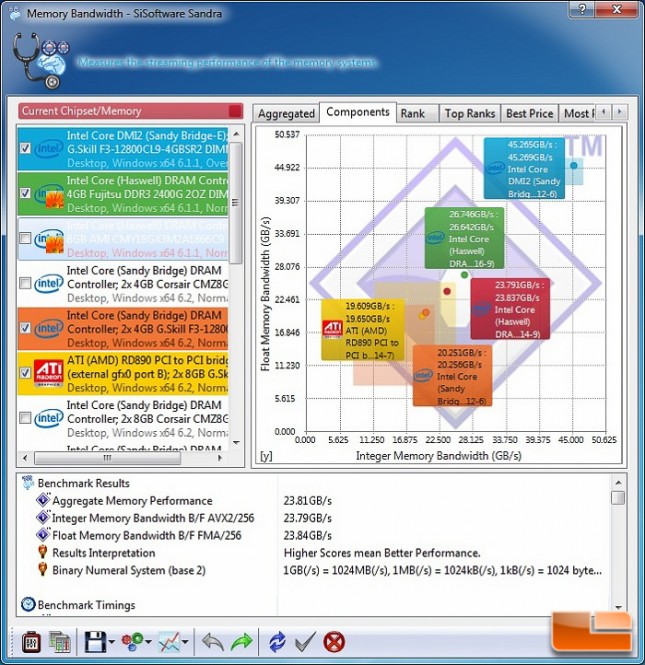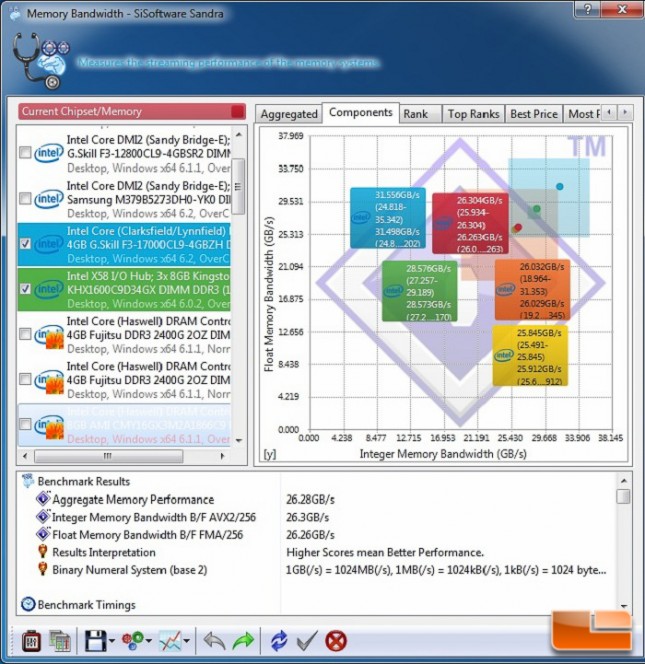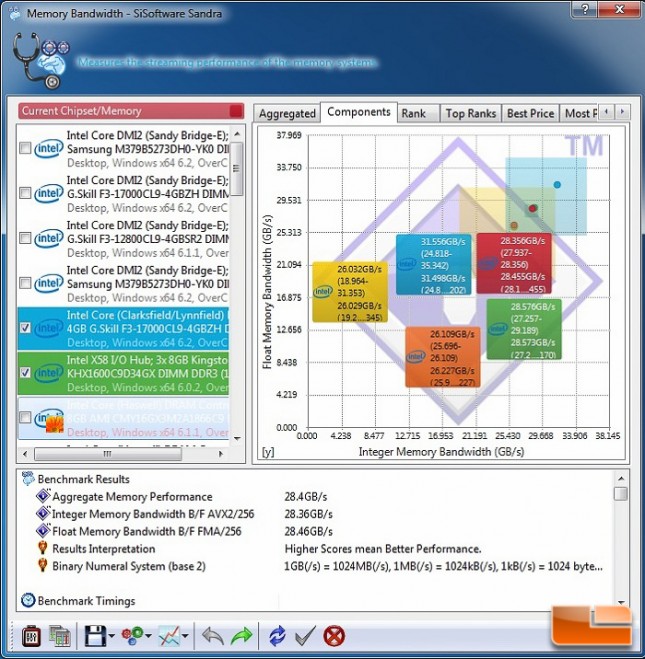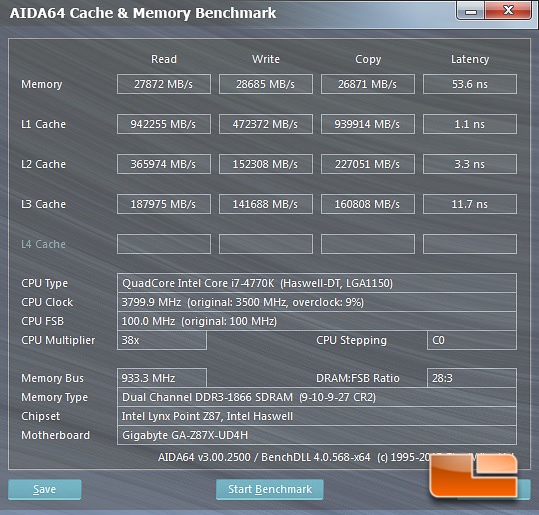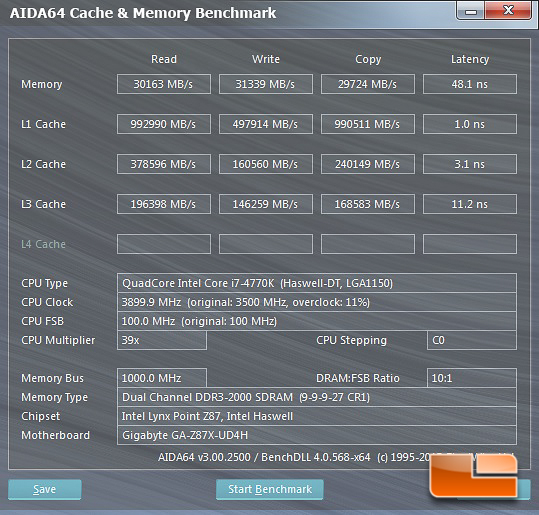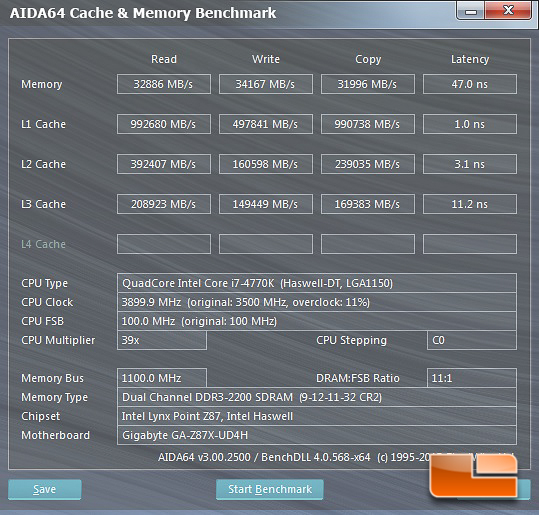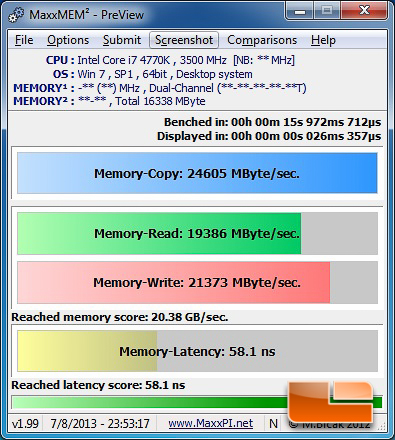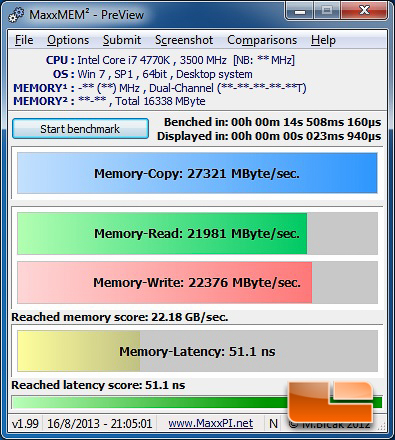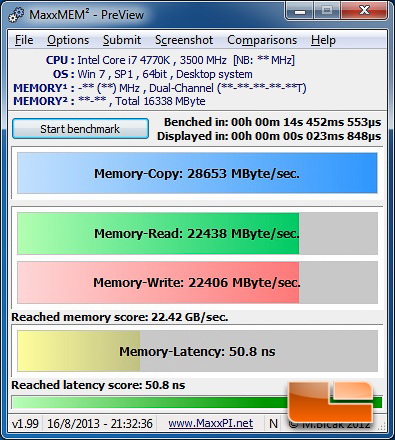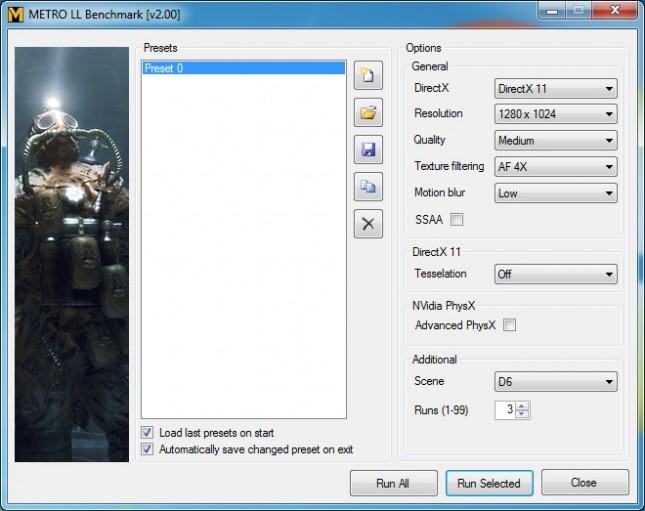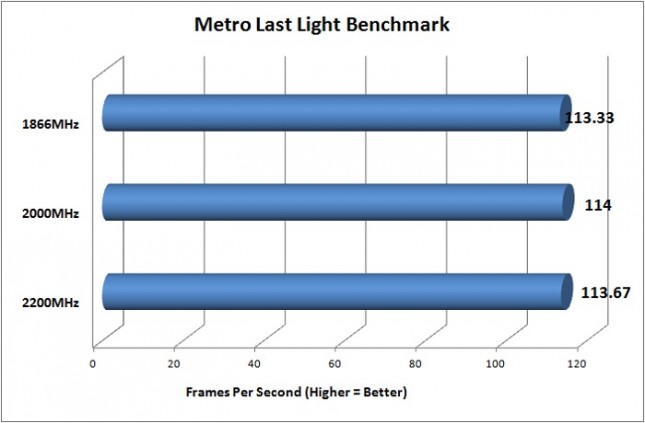Corsair Vengeance Pro Series 16GB DDR3 1866MHz Memory Kit Review
Corsair Vengeance Pro Benchmarking
I started off benchmarking with the stock Extreme Memory Profile (XMP), which was 1866MHz at 9-10-9-27 2T timings running at 1.5v. I then ran the same benchmarks to the highest frequency I was comfortable with obtaining on the GIGABYTE Z87X-UD4H, which came to 2200MHz with 9-12-11-32 2T timings at 1.58v. I also did find a nice improvement by bumping to 2000MHz with 9-9-9-27 1T timings while still running at 1.5v. Ideally Id like to not have to increase the voltage, which is why I ended up finding this simple speed increase.
Also, I did try jacking the voltage all the way up to 1.65v to see if I could hit 2400MHz, but I was unable to get my system to POST.
SiSoftware Sandra 2013 SP4
Sandra needs no introduction as it is the most popular memory performance benchmark available.
Corsair Vengeance Pro 16GB (2x 8GB) Memory at 1866MHz 9-10-9-27 2T
Corsair Vengeance Pro 16GB (2x 8GB) Memory at 2000MHz 9-9-9-27 1T
Corsair Vengeance Pro 16GB (2x 8GB) Memory at 2200MHz 9-12-11-32 2T
Benchmark Results: Running the XMP Profile #1 at 1866MHz, we saw an aggregate memory performance of 23.81 GB/s. When utilizing the voltage increase free overclock of 2000MHz and tighter timings, we saw this same number jump up to 26.28 GB/s. That’s almost a 2.5 GB/s increase by doing only a little tweaking. Overclocking further to 2200MHz, but increasing the voltage to 1.58v, we jumped up another 2.12 GB/s, to 28.4 GB/s!
AIDA64 Extreme Edition 3.0 Beta
AIDA64 Extreme Edition 3.0 software is an excellent benchmarking tool for looking at memory performance on any desktop PC.
Corsair Vengeance Pro 16GB (2x 8GB) Memory at 1866MHz 9-10-9-27 2T
Corsair Vengeance Pro 16GB (2x 8GB) Memory at 2000MHz 9-9-9-27 1T
Corsair Vengeance Pro 16GB (2x 8GB) Memory at 2200MHz 9-12-11-32 2T
Benchmark Results: Running AIDA64 Extreme Edition, we found the read and write scores to be 27872 MB/s and 28686 MB/s at 1866MHz with CL9 timings. Jumping the clock up to the no voltage increase speed of 2000MHz with slightly tighter timings, we saw these rear and write scores jump up to 30163 MB/s and 31399 MB/s. That’s a pretty good jump! Pushing the frequency more, up to 2200MHz, these numbers hit 32866 MB/s read and 34167 MB/s write, which is another nice bump, yet.
Why the big difference between the AIDA64 and Sandra memory bandwidth scores? The higher scores are due to the fact that AIDA64 uses extreme optimizations in all its cache, memory, CPU and FPU benchmarks.
MaxxMEM v1.99
MaxxMEM is another memory benchmarking tool that is starting to become quite popular as of late.
Corsair Vengeance Pro 16GB (2x 8GB) Memory at 1866MHz 9-10-9-27 2T
Corsair Vengeance Pro 16GB (2x 8GB) Memory at 2000MHz 9-9-9-27 1T
Corsair Vengeance Pro 16GB (2x 8GB) Memory at 2200MHz 9-12-11-32 2T
Benchmark Results: Following a similar trend with the previous two benchmarks, we saw increases with each frequency bump. The bump up to 2000MHz with no voltage increase was the biggest jump here.
Metro Last Light Benchmark
Metro: Last Light is a first-person shooter video game developed by Ukrainian studio 4A Games and published by Deep Silver. The game is set in a post-apocalyptic world and features action-oriented game play with a combination of survival horror elements. It uses the 4A Game engine and was released in May 2013.
I ran Metro at settings that aren’t GPU intensive to help show a better impact of the memory.
Benchmark Results: Coming in with a stock FPS of 113.33 and jumping up to 114 FPS with the first overclock was nice, but it is absolutely nothing to write home about. I didn’t see any gains with the 2200MHz clock.

